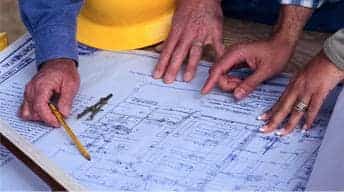- Hotline+971 50 27 28 29 1
- for Individual offices click here


STA Law Firm has a team of settlement experts to represent secured creditors, debtors, trustees, equity holders and suppliers....
Read more information
Corporate Law Firm in UAE-& across MENA. Corporate Lawyers in Dubai...
Read more information
STA Law firm has a dedicated team of franchise lawyers who advises and counsels the franchise arrangements, structuring franchise programs, franchise network and distribution. ...
Read more information
STA - Expert Team of Commercial & Contracts Lawyers in Dubai & UAE...
Read more information
STA Law Firm is one of the leading law firm in Banking and Finance, Capital Markets, DIFC, Compliance and Regulatory practices. ...
Read more information
Contact our expert team of property lawyers in Dubai & across UAE....
Read more information
STA Law Firm's team of employment lawyers in Dubai, Abu Dhabi and across UAE advise universities, engineering & shipping firms, banks, & other industries...
Read more information
Intellectual Property Law Firm. Patent, Trademark Registration UAE...
Read more information
Technology & Media Law Firm in Dubai - Expert Lawyers...
Read more information
STA has a dedicated team of fraud & criminal lawyers in Dubai & UAE...
Read more information
Shipping Law Firm in Dubai | Offices - Middle East, Asia & Europe....
Read more information
Mergers and Acquisitions Law Firm in Dubai and United Arab Emirates...
Read more information
In today’s competitive business environment the mining industry is becoming a very attractive option for foreign investors. New projects are being launched, but we can appreciate that foreign investors will find the mining industry......
Read more information
STA lawyers recognize that the healthcare industry comprises of a variety of individuals, professions, teams and organisations that may need our legal services. We have considerable knowledge and experience......
Read more information
Clients rely on and trust STA's banking lawyers to take a timely, practical and individually tailored approach to meet specific requirements of our clients. ...
Read more information
Insurance Practice at STA - Expert Insurance Lawyers in Dubai & UAE...
Read more information
STA is a leading technology and media law firm in Dubai & across UAE...
Read more information
Hospitality Lawyers in UAE - Expert Advice to Hospitality Industry...
Read more information
STA’s seasoned team of property lawyers in Dubai, Abu Dhabi and across the UAE have thorough and extensive knowledge and experience in dealing with construction and real estate law matters. Learn more about our expertise and our team of property lawyers...
Read more information
STA's lawyers in UAE specialize in all areas of contentious as well as non-contentious discipline in oil and gas industry and advice on both upstream and downstream work. Consult one of our Senior Energy Lawyers in Dubai or other offices today!...
Read more information
Combining variety of practice disciplines to provide extensive advice and counsel to clients, STA’s FMCG practice represents companies in a broad range of industries including large scale franchisors, Fortune 250, and multinationals ...
Read more information
Shipping and Maritime Law Firm - UAE, Middle East, Asia and Europe. Expert advice on ship building, ship fiance, sale and purchase, compliance, due diligence and more. Our lawyers advice on all types of vessel including bulk carriers, tankers, cruise ships, offshore rigs and support vessels....
Read more informationSTA's Team of Lawyers in Abu Dhabi, Bahrain, Doha, UAE, Luxembourg, Moscow, RAK, Sharjah, and Singapore. Find a Lawyer. ..
Read more informationSaudi Arabia approves new Law of Evidence
 Last week, Saudi Arabia officially approved their new law of Evidence. The new law intends to improve the country's legal system. The legislation is one of four major legislative projects proposed by Crown Prince Mohammed bin Salman last year, along with the personal status law, the civil transactions law, and the penal code for discretionary sanctions. The law of Evidence is expected to eliminate inconsistencies in the court.
Last week, Saudi Arabia officially approved their new law of Evidence. The new law intends to improve the country's legal system. The legislation is one of four major legislative projects proposed by Crown Prince Mohammed bin Salman last year, along with the personal status law, the civil transactions law, and the penal code for discretionary sanctions. The law of Evidence is expected to eliminate inconsistencies in the court.
The Council approved the law of Ministers. It consisted of multiple provisions that resulted in a qualitative leap in the procedures for various parts of presenting, examining, and making decisions on Evidence at the Kingdom's courts and other judicial institutions.
A few features of the new law are as follows:
 According to the law, a confession is judicial if the plaintiff confesses the actuality of the allegations framed before the court. In contrast, an admission is non-judicial if it does not occur before the court or occurs during another case. The confession must be made either openly or implicitly verbally or in writing, and it will not be accepted if it is discovered to be false.
According to the law, a confession is judicial if the plaintiff confesses the actuality of the allegations framed before the court. In contrast, an admission is non-judicial if it does not occur before the court or occurs during another case. The confession must be made either openly or implicitly verbally or in writing, and it will not be accepted if it is discovered to be false.There'd be no instances in which the witness is harmed due to his testimony.
Thus, the law of Evidence is aligned with Saudis 2030 Vision, as well as international standards.